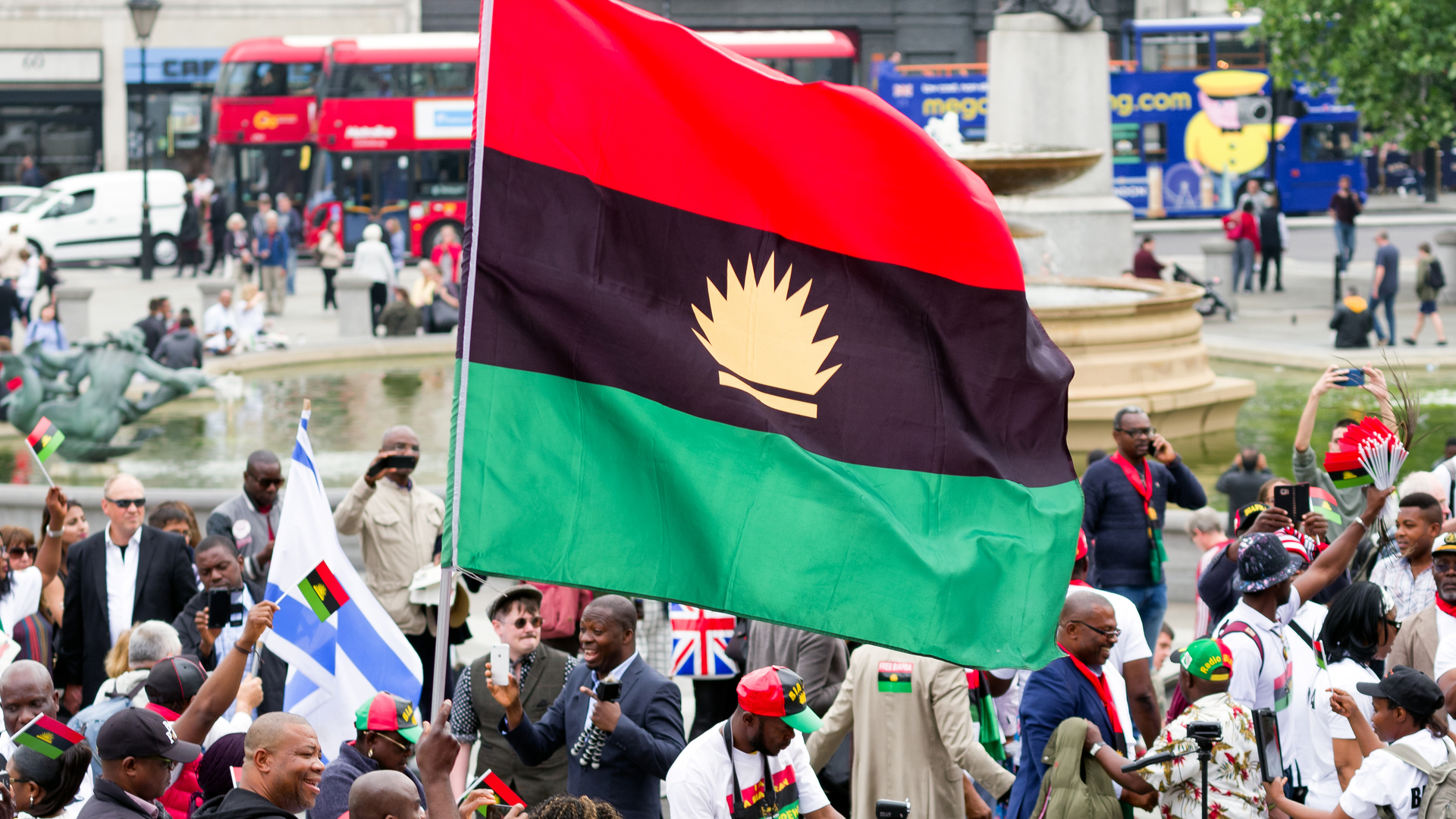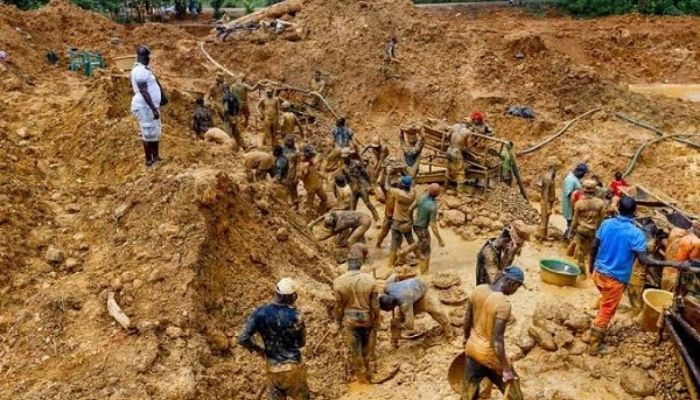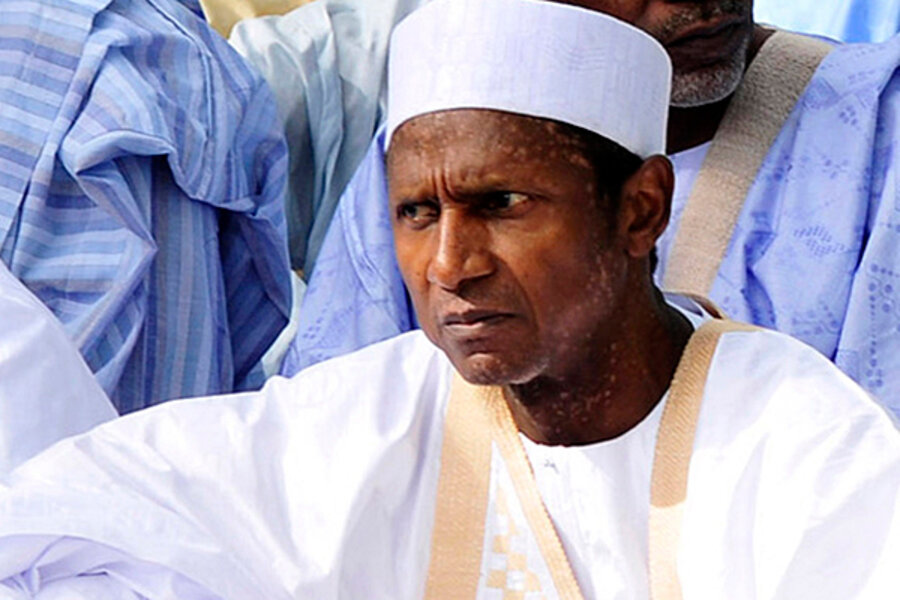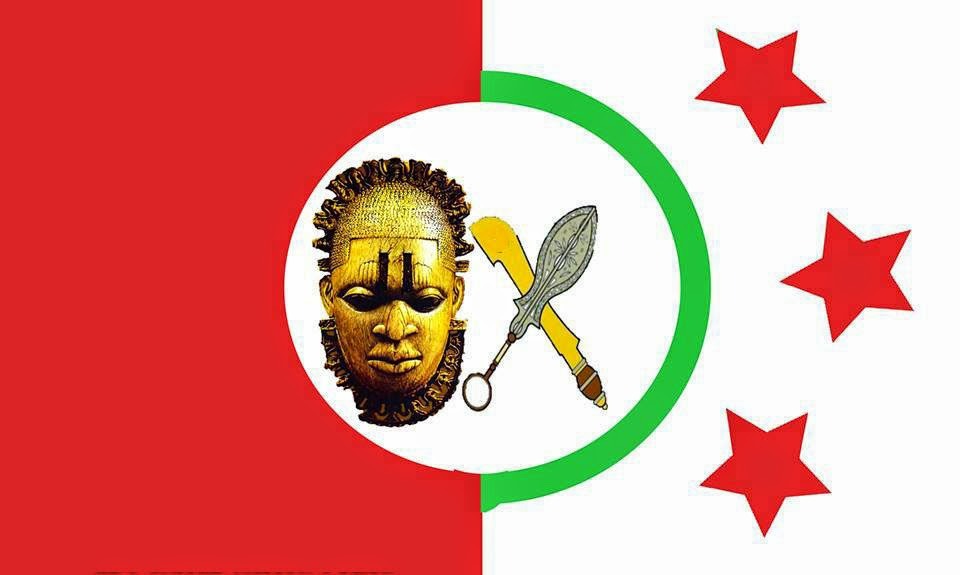culled from GUARDIAN, March 16, 2006
The ousted Governor of Anambra State, Chris Nwabueze Ngige can still walk tall in this community. He has been defeated in the court of law, but he has not been humiliated. He is out but he is not down. History is likely to be kinder to him than his detractors may assume. The judgement of the election Still Walk T tribunal on August 12, 2005, has now been upheld by the Court of Appeal sitting in Enugu, on March 15. It was declared categorically that for close to three years, Ngige has exercised an illegal mandate, that he was not the rightful winner of the Governorship election in Anambra. But this is not a comment on Ngige but a comment on Nigeria's underdeveloped electoral process and framework.
It is in addition, the grand finale of the orchestrated assault on the government led by Chris Ngige, a reflection of an invidious power-play, the script of which was written in Aso Rock, and put on stage with the aid of a Godfather called Chris Uba. Ngige's exit, and Peter Obi's emergence as Governor of Anambra State is not about these two gentlemen either, one fallen, the other rising but about the same bigger forces of the Nigerian space which have turned individuals like Ngige and Obi into victims. For close to three years, Ngige acted as Governor of Anambra State. Obi who has been declared the rightful owner of the seat now has barely 14 months to spend in office. So, where is justice? Whose justice? Will Peter Obi be allowed to serve for four years? Both men should feel cheated.
Ngige is the only Governor elected on the platform of the PDP who has been removed through the election petition process. Every other PDP Governor whose election was challenged, was protected by the PDP government exercising the power of incumbency, and its near-absolute control of state authority. Ngige has been sacrificed because he is considered an arrogant and selfish fellow. If he had respected the wishes of his Godfather, Chris Uba and handed over the treasury to him, he would still be in office today, stolen mandate or not. After the Godfather mobilised a revolt against him and sacked the whole of Anambra State, with thugs destroying state property and chasing lawmakers out of town, if he had gone to the Godfather to genuflect, and made peace, he would have remained the Governor today. The illegal manipulation of election results in Anambra state would have been covered up. The election petition tribunal would have been instructed to rule in his favour. Assassins were sent after Ngige. His security details were withdrawn. If he had joined the Third Term campaigners, if he had taken pages of newspaper adverts to declare that Baba is Nigeria's messiah, his sins whatever they may be (disrespecting a Godfather, repudiating a secret cult oath, "eating alone") could have been forgiven.
Chris Uba had boasted at every turn that he would remove Ngige from office. What he could not achieve through intimidation, he has now achieved through due process. It is dangerous when the judicial process is seen to be part of a grand manipulation of advantages by those in charge of state authority. Sound and logical as the ruling of the court in the Ngige case may be, true as the declarations may sound, the greatest damage to the case is the thinking that the judicial process has been used to achieve a pre-determined purpose. When the law and its officers are soiled with palm oil, the garment of justice is bound to look bad indeed.
The conclusion of the Ngige case raises more doubts and suspicions rather than confidence in due process. This is worsened by the excitement of the Obasanjo crowd behaving as if Aso Rock has seen the end of one of its enemies. The people may accept the wisdom of the Court, but no one will see Ngige as a man who on his own, stole and kept another man's mandate for more than three years. Law is not morality. But the law cannot also exist outside the dynamics of its environment, and the expectations of its public. Ngige's exit has strengthened the Godfathers, present and future. Adedibu taught Ladoja a lesson in Oyo State. Chris Uba's prophecy about Ngige's future has come to pass. Future Governors who may be required by their Godfathers to hand over the treasury, and key positions in government would be tempted to comply. This will provide a stronger basis for corruption in the system.
The big villain of the Court of Appeal ruling is the Independent National Electoral Commission (INEC). The anti-Ngige crowd in the PDP should pay more attention to the declaration that INEC declared the wrong man the winner of the 2003 Gubernatorial election in Anambra State. The Court of Appeal also noted the dubious role of INEC in the case. At the election petition tribunal, it had defended the integrity of the election that it conducted in Anambra in 2003. It was so to speak, on Ngige's side. At the Court of Appeal, the same INEC had brought a strange prayer asking that the entire election in 2003 in Anambra be nullified, and that it should be allowed to conduct fresh elections. By dancing around like a prostitute, INEC betrayed its partnership and ignorance of the law. It lent credence to the widely circulated story that the intention of the PDP apparatchiks was to use the Court of Appeal to cancel the entire elections so that a man of 'their' choice could again be rigged into power as Governor and Obi, the candidate of a rival party, could be prevented from being the beneficiary of the Court process.
The Court of Appeal refused to be part of such chicanery which would have stood the law on its head and brought the Court to total ridicule. Their Lordships rescued the integrity of the Court from assault, and provided a fence of technical strength for their ruling. INEC has for long been regarded as a tool in the hands of the Presidency. Because its managers need their jobs too badly, they can be pushed from one end to the other. Such a compromised and shameless electoral body is a threat not just to democracy, but society itself. The worse point is that INEC has not shown any signs of improvement. The Mantu committee has recommended the scrapping of State Independent Electoral Commissions. This is a prescription for unitarism. In 2007, an Abuja-based INEC can fix whatever results that may be convenient for the Godfathers, and impose same on Nigerians. If this amendment goes through, in 2007, it is only the Godfathers that will participate in the elections; not the people, and they will pretend to do so on our behalf. Thus, INEC has served in the last eight years, the interests of those who have elected to exercise a veto power on the Nigerian state and its citizens. Their efforts and the effects qualify to be regarded as "crimes against humanity". What the court has said is that INEC cannot be trusted.
The judgement in the Ngige case is also about the electoral framework. Electoral Act 2002 was indirectly, a subject of the trial. The Act did not provide a time-frame for the determination of electoral disputes before the inauguration of elected persons. It is this lacuna that has now created a situation whereby a sitting Governor, and before now, members of the National Assembly had to vacate their seats after spending close to three years in the position. This is bound to breed ill-will and destabilise the system. Sadly, the Electoral Bill now before the National Assembly, as proposed by INEC does not correct this omission. It should.
Electoral petitions should be determined before inauguration of new tenures. The judiciary should be given a specific time-frame within which all election petitions should be discharged. We operate an American Presidential system where the situation just described obtains, but it is a lesson that we have refused to learn. Election petitions are prolonged to the detriment of the nation in the long run. The Anambra debacle is an embarrassment to Nigeria. The people of Anambra may be quiet about what has transpired - both Ngige and Obi are their kinsmen - there may be no riots on the streets of Onitsha, no burning of tyres, no gnashing of teeth but the people may never forget how their state has been turned into a theatre of political conflicts.
Peter Obi, shown in the papers smiling, with Ngige wearing a scowl was once quoted as saying: "Should I make it into the Government House, Awka, I shall continue from where he stopped". This is the statement of a fair-minded sportsman, paying tribute to his opponent. Obi is also a child of destiny. He says: "... what has happened is God's doing. So why I must bear grudges?". For about 24 hours after the ruling, a leadership vacuum was created in Anambra that is alien to the 1999 Constitution, and there were fears that INEC may be tempted to flout the Order of the Court of Appeal. It is therefore just as well that Obi has now been given the enabling Certificate of Return, so he can be sworn in as Governor. But now that Ngige is out, and Obi, an APGA man is in power, who will pay Chris Uba the money he asked for? The Godfather, the PDP and Ngige are all out in Anambra: the shame is on the PDP as a political party: the party of election riggers!. As for Ngige, he says he accepts the ruling of the Court in good faith. He doesn't have an option, does he? Hopefully, "they" will now leave him alone.












